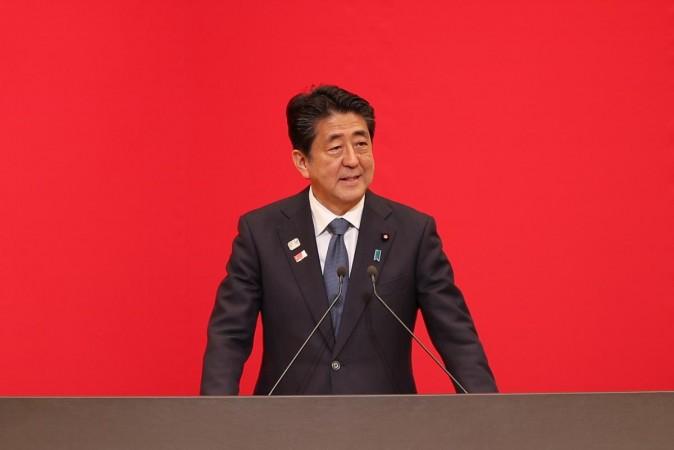Shinzo Abe will be remembered as the Japanaese Prime Minister who had redrawn the contours of
bilateral ties with India in a changed global order and winning over friends across all party
lines.
The official NHK television confirmed that Abe died on Friday after being shot at Nara around 11:30 a.m. local time by a former navy man who had reportedly been "dissatisfied" with him.
Known for his aggressive economic policy dubbed as "Abenomics", he tried to revitalise the
country's sluggish economy and was a friend to reckon with for many world leaders, including
India's former Prime Minister Manmohan Singh and now for Prime Minister Narendra Modi.
He visited India four times -- in 2006, 2014, 2015 and 2017 and had the distinction of being the only Japan PM who graced the Republic Day parade in 2014.

Born in a political family of prime minister grandfather and foreign minister father, Shinzo Abe
grew up witnessing an apologetic Japan bowing before the world for its war time deeds.
His grandfather Nobusuke Kishi, who was prime minister from 1957-60 could not correct a legacy of subdued Japan enshrined in the US military pact despite sincere efforts. He wanted to revise the US-drafted 1947 Pacifist constitution of Japan to become an equal security partner with the United States.
Shinzo Abe's father Shintaro Abe was foreign minister from 1982 to 86, when Japan tried to overcome military constraints and negotiate hard with the US administrations on a series of market barriers to Japanese exports.
Why Conservatism?
In his book Utsukushii Kuni e (Toward a Beautiful Country), Abe recollected how "some people used to point to my grandfather as a 'Class-A war criminal suspect,' and I felt strong repulsion. Because of that experience, I may have become emotionally attached to 'conservatism,' on the contrary."
Though Shinzo Abe became the country's Prime Minister briefly in 2006-2007, he had to wait until 2012 to return to power as a determined choice for almost eight years uninterrupted from 2012 to 2020. He had to relinquish the office due to chronic health concerns.
Abe will be remembered for achieving what his grandfather failed. He had unrelentedly pushed for
reversal of Japan's image as an equal military partner. He was instrumental in revising the controversial Article 9 of Japan's Constitution that renounced "war as a sovereign right of the nation" at the behest of the US Occupation Authorities following Japan's defeat in World War II.

The reversal enabled Japan to tranform and modernise its self-defense forces to full-fledged
army, navy and air force with increased defence spending. He even sent the forces abroad to fight
overseas for the first time after the war period.
Japan not predestined to apologise
To be precise, he managed to usher in a new global role for Japan, bereft of its past
generation's apologetic war crimes and restored national pride. Refusing to bow before the
pointing fingers of China and South Korea over the past generation's war time mistakes, he
undertook the controversial Yasukuni Shrine visit that triggered protests in several Asian
capitals.
Abe, who suffered from ulcerative colitis, a chronic intestinal disease, did not give up his
grip on the ruling Liberal Democratic Party as leader of one of its dominant factions and backed
the current Prime Minister Fumio Kishida to keep the agenda of steering the country away from
the compulsive war time past.
However, he remained worried after exiting the PM's office that the conservative agenda he had
bequethed for the party would fade away. "From now on, I want to sacrifice myself as one lawmaker to make true conservatism take root in Japan," he wrote in the magazine Bungei Shunju.
Ironic that a former navy recruit shot Abe, while he wanted to leave behind a legacy of national pride and a new unapologetic Japan.

















